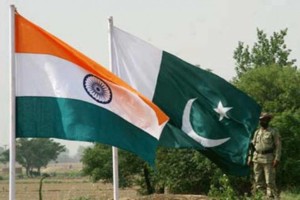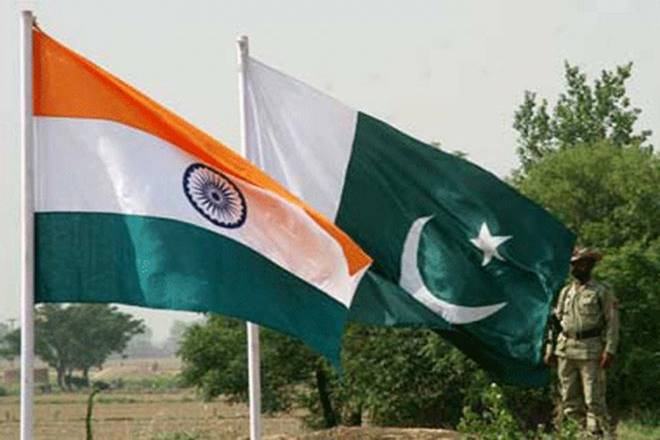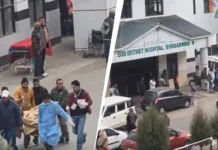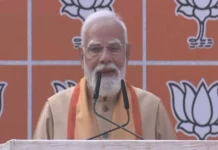 ISLAMABAD: Pakistan summoned Indian Deputy High Commissioner J P Singh today for the second time in two days over the alleged “unprovoked ceasefire violations” by the Indian forces that killed Pakistani citizens.
ISLAMABAD: Pakistan summoned Indian Deputy High Commissioner J P Singh today for the second time in two days over the alleged “unprovoked ceasefire violations” by the Indian forces that killed Pakistani citizens.
Director General (South Asia & SAARC) Mohammad Faisal summoned Singh for “unprovoked ceasefire violations by the Indian occupation forces along the Working Boundary on 19th January in Sialkot Sector,” the Foreign Office said.
He said the firing resulted in the death of a 24-year-old civilian and injured nine others in village Harpal.
Yesterday, Singh was summoned after two women died in the alleged unprovoked ceasefire violations.
“The Indian forces along the Working Boundary are continuously engaged in indiscriminate and unprovoked firing with heavy mortars and automatic weapons on the civilian populated villages, since the last 2 days,” Faisal said.
He said despite calls for restraint, India continues to indulge in ceasefire violations.
In 2018, the Indian forces have carried out more than 125 ceasefire violations along the Line of Control and the Working Boundary in just 19 days, resulting in the killing of 4 innocent civilians, while injuring 20 others.
“This unprecedented escalation in ceasefire violations by India is continuing from the year 2017 when the Indian forces committed more than 1900 ceasefire violations,” he said.
Faisal also said that the deliberate targeting of civilian populated areas is indeed deplorable and contrary to human dignity, international human rights and humanitarian laws.
“The ceasefire violations by India are a threat to regional peace and security and may lead to a strategic miscalculation,” he asserted.
Faisal urged India to respect the 2003 Ceasefire arrangement, investigate the ceasefire violations and instruct the forces to respect the ceasefire in letter to spirit and maintain peace on the LoC and the Working Boundary.
He urged that the Indian side should permit UN Military Observer Group in India and Pakistan (UNMOGIP) to play its mandated role as per the UN Security Council resolutions. -PTI







